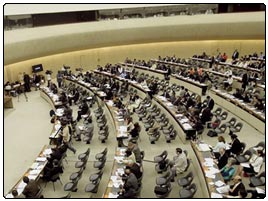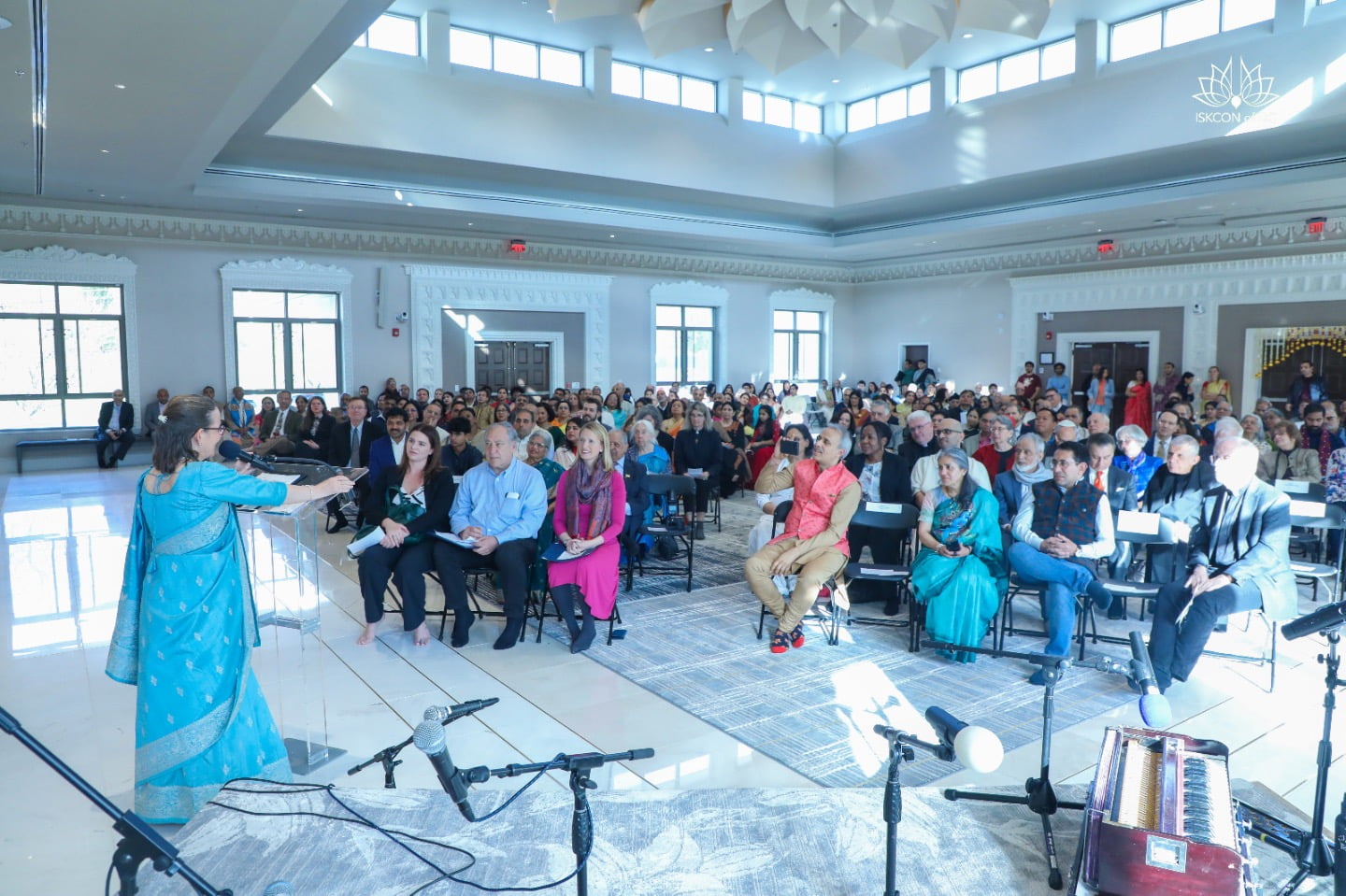Controversy Surrounds UN “Freedom of Expression” Resolution
By ISKCON News Staff | Nov 28, 2009

ISKCON’s Global Minister of Communications Anuttama Dasa, representing the Hare Krishna Movement, recently signed a statement against a UN resolution that seems, at first glance, like it should warrant ISKCON’s support.
It all started out well enough, when on October 2nd, the UN Human Rights Council in Geneva adopted a Resolution on the Right to Freedom of Expression.
“This is a step in the right direction toward protecting free speech,” said The Becket Fund for Religious Liberty in a statement at the time, “Because it excludes the phrase ‘defamation of religion.’”
Why would The Becket Fund, an organization devoted to defending religious freedom for people of all faiths, have a problem with “defamation of religion”? Because the concept—introduced by Organization of Islamic Conference countries in annual resolutions at the UN since 1999—appears to inhibit peaceful expression by protecting ideas favored by the state, instead of people.
So when the final language on the Right to Freedom of Expression resolution included the idea of “negative stereotyping of religions,” the Becket Fund expressed concern. This seemed to be a step backward from last Spring’s Durban Review Conference Outcome Document, which instead discussed “negative stereotyping of persons” based on religion or belief.
The Becket Fund’s fears were realized when Syria, on behalf of the Organisation of the Islamic Conference (OIC), proposed a UN General Assembly resolution “combating defamation of religions” in New York on October 29th.
At a Geneva UN meeting ending the very next day, Pakistan, on behalf of the OIC, and Nigeria, on behalf of the Africa Group, made a similar proposal. This time it was as a binding treaty amendment to the ICERD, an existing international treaty on racism.
The United Nations has continuously passed non-binding resolutions on “defamation of religions” since 1999. However, this was the first time ever that a UN body proposed a binding treaty to combat the “defamation of religions.”
If passed, the resolution would continue to provide international cover for domestic anti-blasphemy laws in countries like Pakistan and Sudan.
“Human rights are meant to protect the individuals, not ideas or governments,” said Angela C. Wu, International Law Director of the Becket Fund. “Yet the concept of ‘defamation of religions’ further empowers governments to choose which peacefully expressed ideas are permissible and which are not. It is pivotal for human rights defenders around the globe to unite against this flawed concept before it becomes binding law.”
Doing their part, The Becket Fund has joined over one hundred other human rights organizations in a common civil society statement protesting the resolution. The coalition is religiously diverse, including ISKCON devotees, Muslims, Christians, Baha’is, Jews, Atheists, Humanists, and non-religious organizations—and also regionally diverse, with members hailing from over twenty countries around the world.
“United Nations resolutions on the `defamation of religions’ are incompatible with the fundamental freedoms of individuals to freely exercise and peacefully express their thoughts, ideas, and beliefs,” one part of the statement reads. “Unlike traditional defamation laws, which punish false statements of fact that harm individual persons, measures prohibiting the `defamation of religions’ punish the peaceful criticism of ideas.”
The statement also points out, “Such resolutions provide international support for domestic laws against blasphemy and “injury to religious feelings”, which are often abused by governments to punish the peaceful expression of disfavored political or religious beliefs and ideas.”
A final plenary vote on the UN resolution is expected in early to mid-December. To view the civil society statement and its signatories, visit www.whatisdefamationofreligion.com. To sign on behalf of your organization, please email whatisdefamationofreligion@gmail.com.












